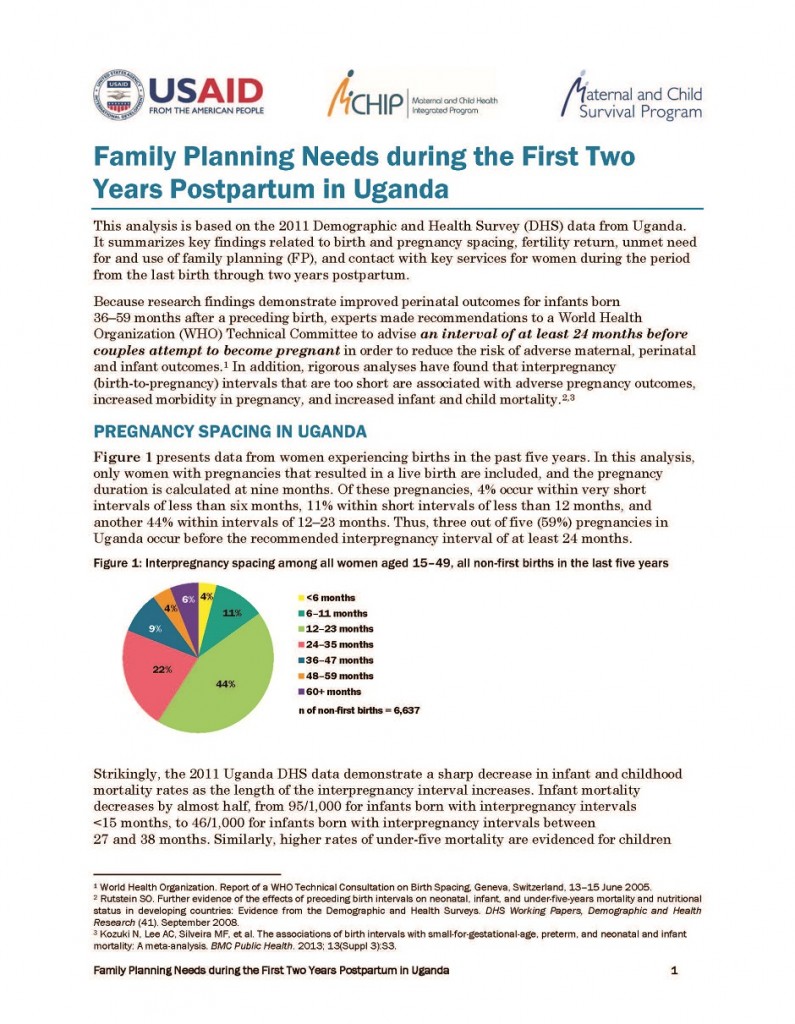
This analysis is based on the 2011 Demographic and Health Survey data from Uganda. It summarizes key findings related to birth and pregnancy spacing, fertility return, unmet need for and use of family planning, and contact with key services for women during the period from the last birth through two years postpartum. […]
Read More…
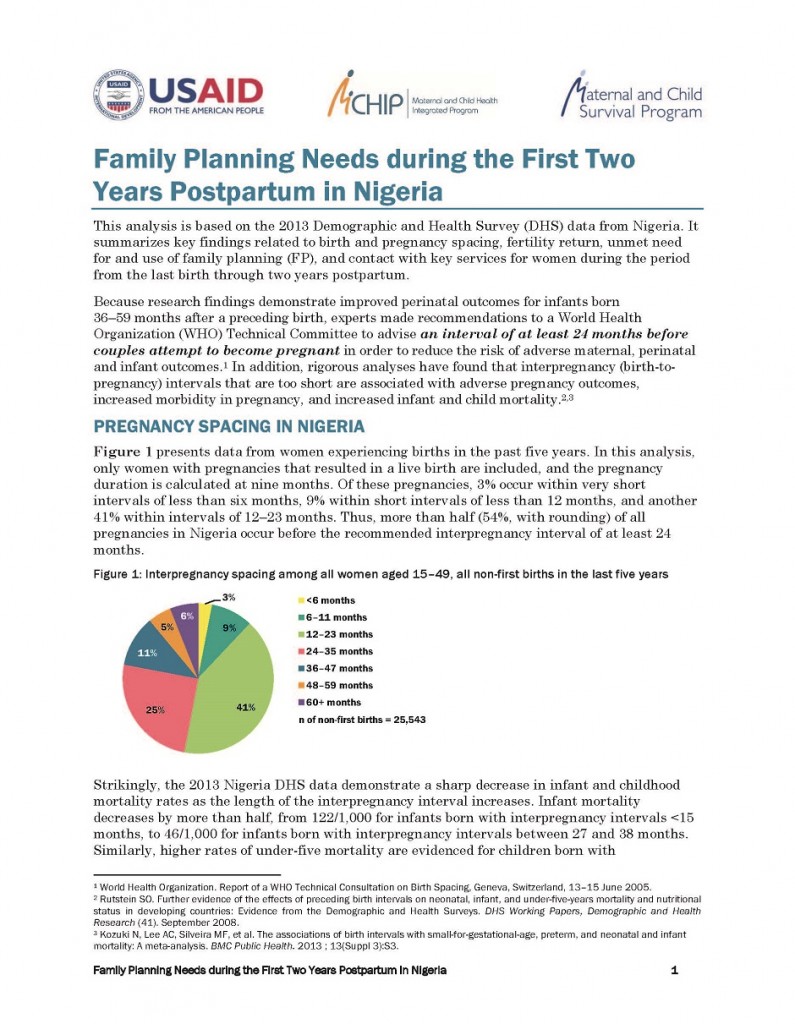
This analysis is based on the 2013 Demographic and Health Survey data from Nigeria. It summarizes key findings related to birth and pregnancy spacing, fertility return, unmet need for and use of family planning, and contact with key services for women during the period from the last birth through two years postpartum. […]
Read More…
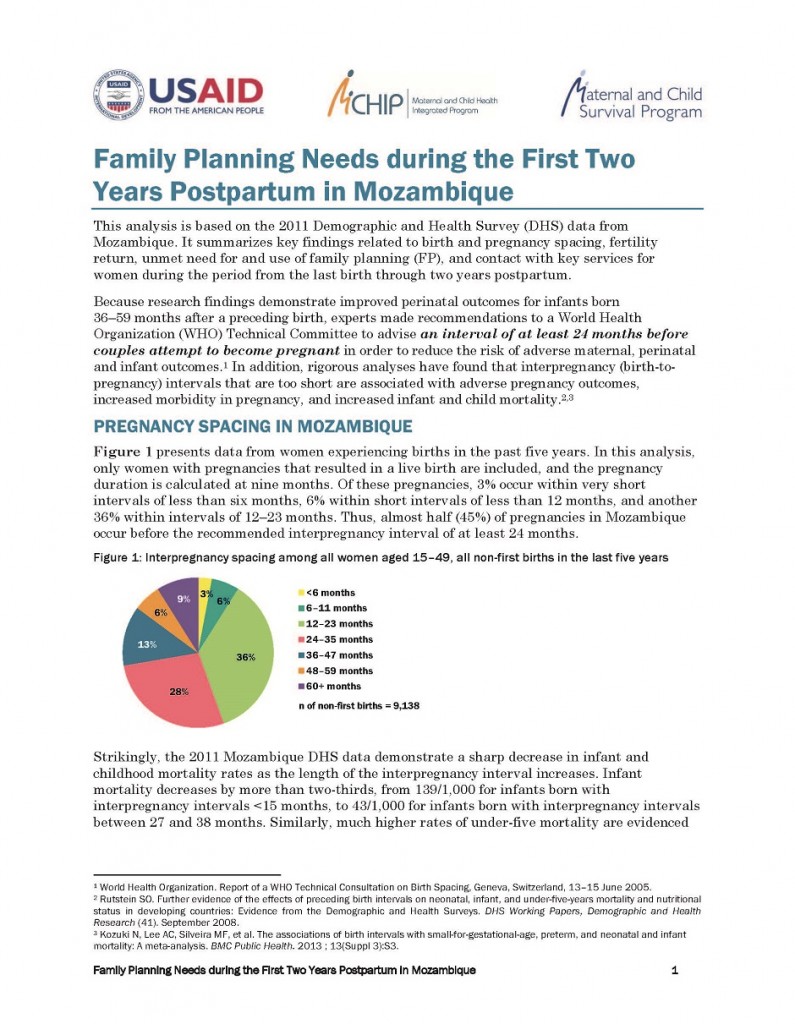
This analysis is based on the 2011 Demographic and Health Survey data from Mozambique. It summarizes key findings related to birth and pregnancy spacing, fertility return, unmet need for and use of family planning, and contact with key services for women during the period from the last birth through two years postpartum. […]
Read More…
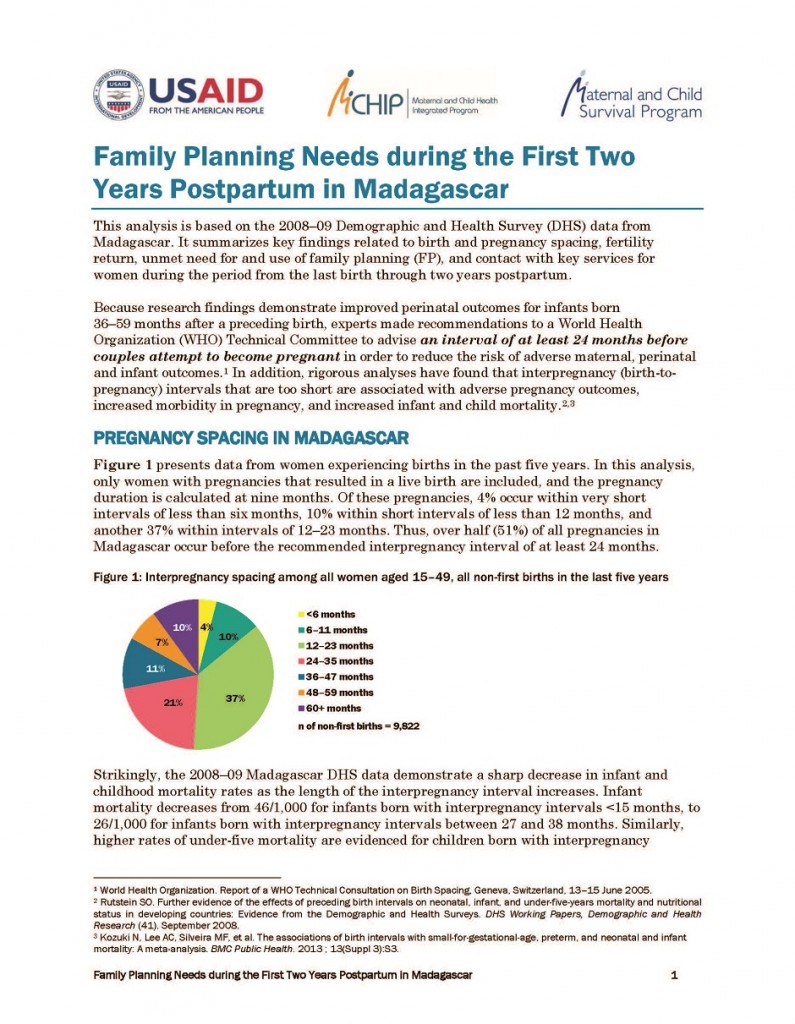
This analysis is based on the 2008-09 Demographic and Health Survey data from Madagascar. It summarizes key findings related to birth and pregnancy spacing, fertility return, unmet need for and use of family planning, and contact with key services for women during the period from the last birth through two years postpartum. […]
Read More…
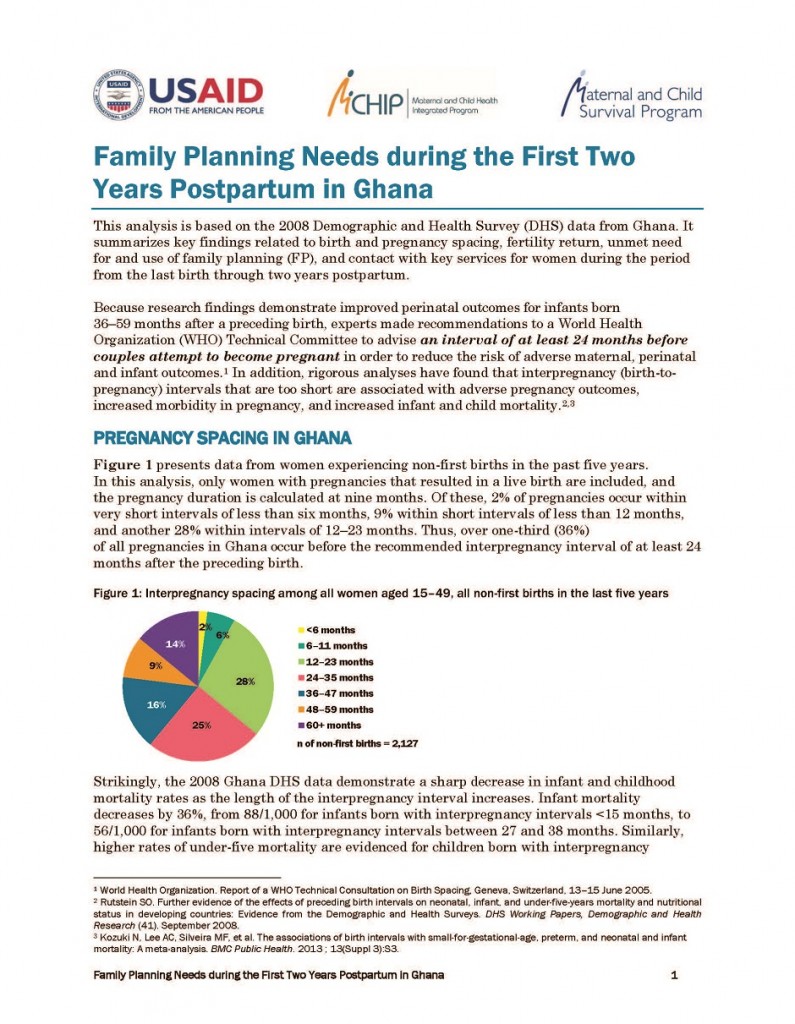
This analysis is based on the 2008 Demographic and Health Survey data from Ghana. It summarizes key findings related to birth and pregnancy spacing, fertility return, unmet need for and use of family planning, and contact with key services for women during the period from the last birth through two years postpartum. […]
Read More…
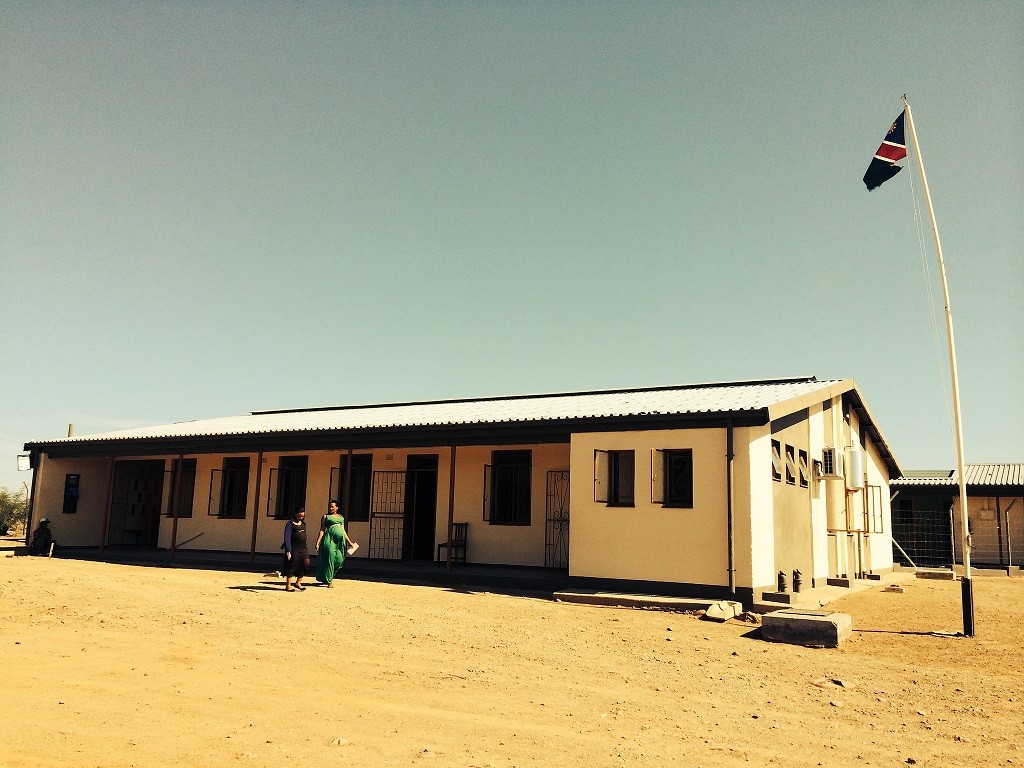
Until recently, Impalila Island was cut off from even the most basic health services. Thanks to a national Health Extension Program, and MCSP support, this is no longer the case. […]
Read More…
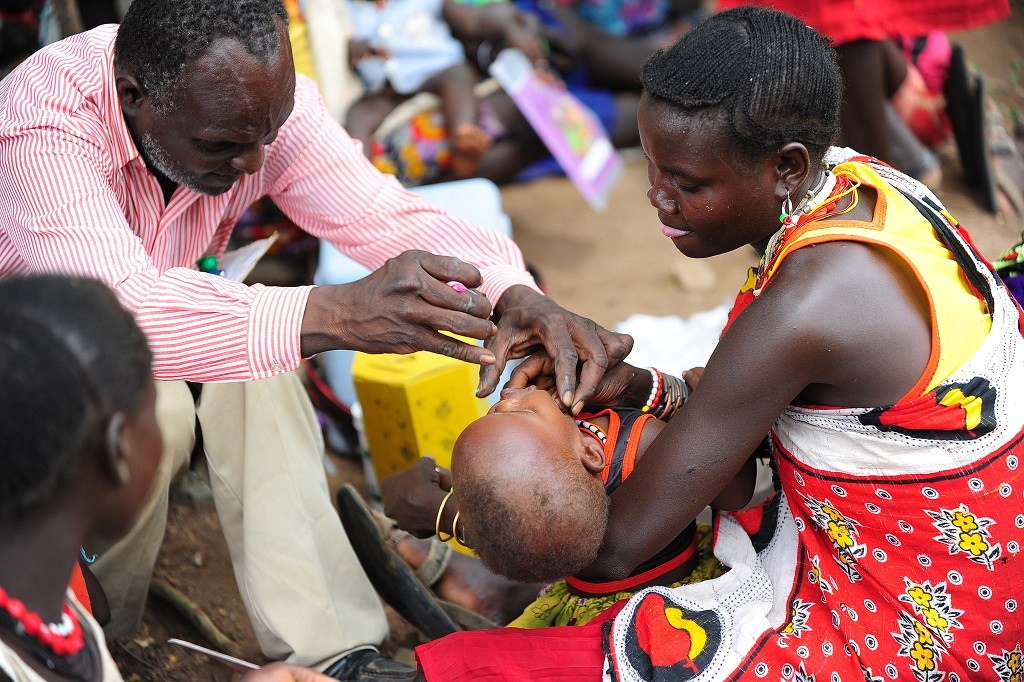
For the public health community, this week’s historical conference on immunization in Africa must be a watershed moment for reaching those most in need. […]
Read More…
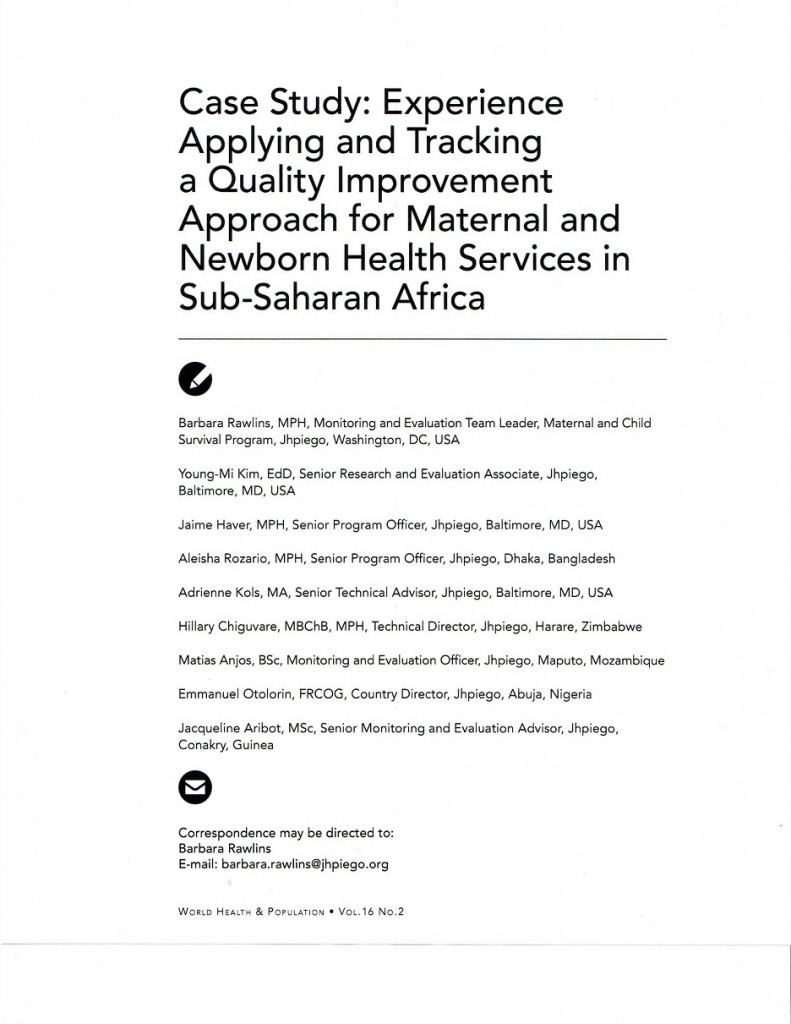
The Standards-Based Management and Recognition (SBM-R®) approach to quality improvement was applied to maternal and newborn health services in Guinea, Mozambique, Nigeria and Zimbabwe. In every country, the quality of service delivery, as measured by clinical performance standards, improved following the intervention. The performance of evidence-based service delivery practices, as measured through service statistics, also […]
Read More…
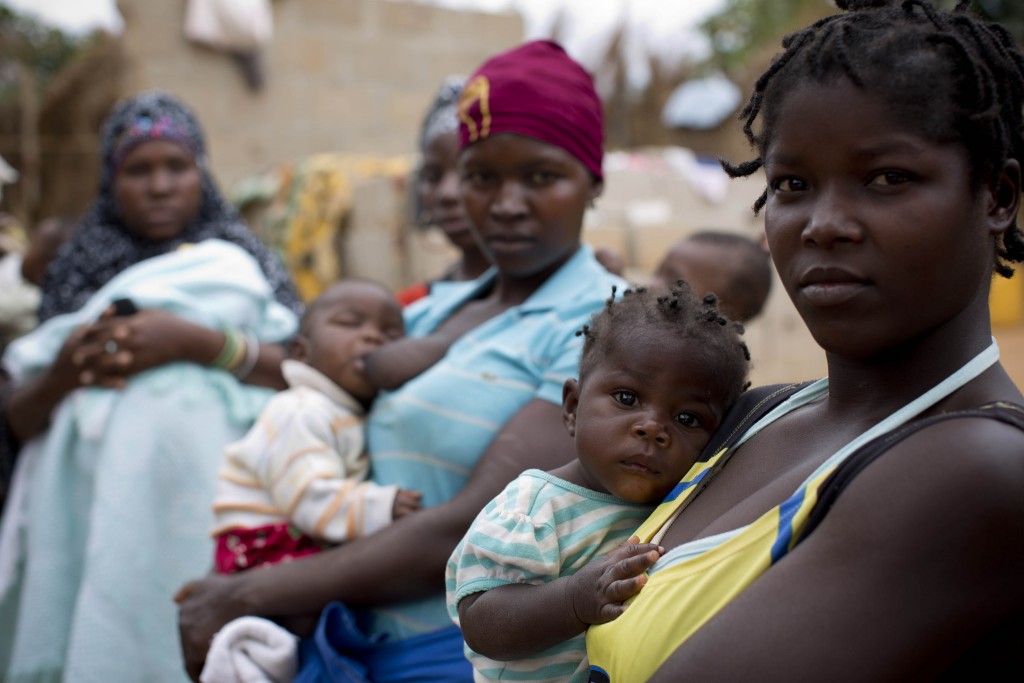
A first-ever workshop of its kind attracts 140 participants with a clear but mighty goal: to increase coverage of immunization and child survival interventions. […]
Read More…
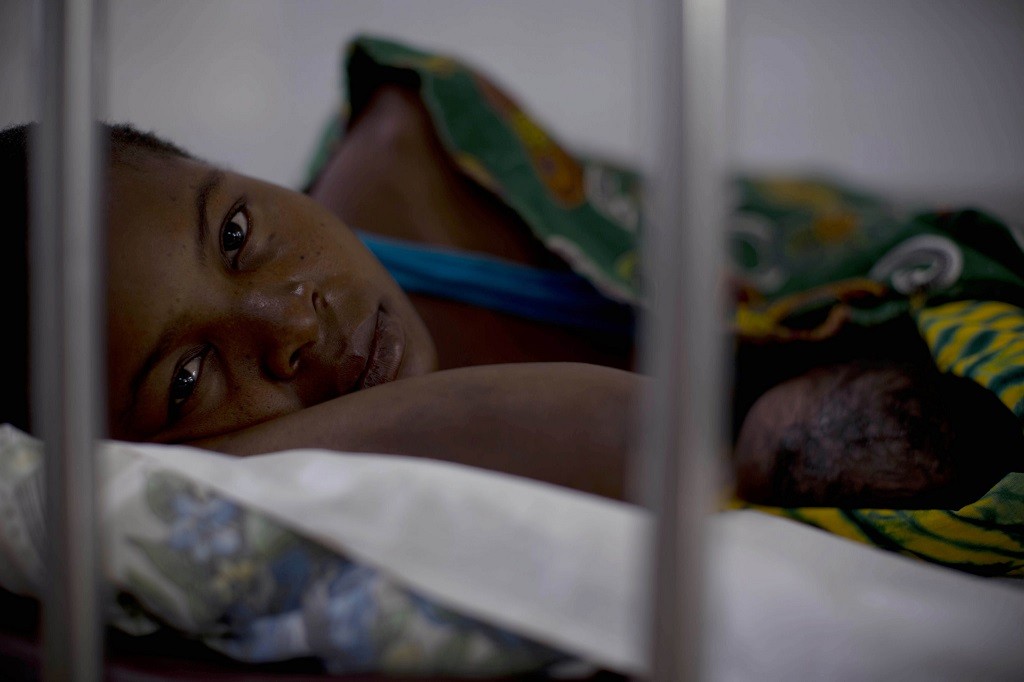
With support from MCHIP and MCSP, more than 10,000 women have given birth safely at Matola II Health Center since April 2011. […]
Read More…










